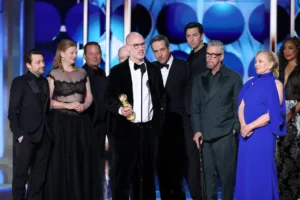‘Fanny and Alexander’ Review: A Contemporary Christmas Masterwork

Photo Courtesy of CRITERION
★★★★★
Life through the lens of the youthful.
When a director or screenwriter strikes a chord within their viewer that centers around a personal idea or experience, there’s nothing more mesmerizing. Creativity thrives under the conditions of ambition and confidence. Moreover, the wherewithal to identify the distinct sentiment through a simple formulation, based upon the foundational representation of good and evil, or the confluence of an internal, autobiographical figment is quite treasuring in every sense of the idea. In the optics of a director, the most personal is always the most influential and a mantra such as this coalesces every single credence in the heart of a filmmaker. I feel as if a tale of disposition is more of the blueprint for why auteurs allocate tireless hours to pinpoint the quintessential formula for concocting works of dynamic art. A creator with the intention to outlast the generalized, exemplary format identifies admirably with Ingmar Bergman. The scripts of each one of his heart-throbbing narratives drive the creative flow of modern cinema in more ways than clear-cut, distinct facets. And when it applies to the grand scheme, “Fanny and Alexander” may just pose as his most profound and emotional beam of livelihood from his bold and preeminent oeuvre.
The stylistics deriving from each chapter of the five-hour miniseries is packed with a pungent thematic statement that embodies endearment, familial camaraderie, as well as some of the most detailed character formulation throughout all of period-piece cinema. For the taciturn opening sequence, you see the final sketches of Ingmar Bergman’s imagination all mingling in a fashion of some of the utmost ingenuity. And throughout act one, otherwise referred to as “The Ekdahl Family celebrates Christmas,” the meticulous writing and character introduction prove why Bergman’s eye for a cinematic paragon is just as impactful amongst his eventual years as it was during his critical prime (back with films such as The Seventh Seal and Persona within the 1950s and 1960s). In a fundamentally philosophical sense, the work of something so contemporary and innovative such as “Fanny and Alexander” isn’t spewing with as many complexities character-wise. Primarily, the tale is more of an internal, transfixing experience that is ideally molded around conveying a humanistic tale without the cliché subtexts. It’s a story that envelopes the viewer with its striking contextual appeal rather than its marvelous scope and baseline features which drift between the cinematic ideologies of biographical and ensemble.
The most seamless element with which I feel almost every revolutionary premodern director has a fascinating strategy is coloring the texture of the artistic vision. For auteurs such as Akira Kurosawa and Ingmar Bergman, their influential nature derived and evolved on the cinematographic platform of black and white cinema; however, as the industry altered over later years of the twenty-first-century, they were forced to adapt their optical perception of filmmaking and creative productions of “Ran” and “Fanny and Alexander” maintain continuities as they both exhibit a stunning formula of set tints and pose as a core product of these transfigurations. Bergman’s film is so profound in this bracket as the set-pieces, such as the home of Edvard Vergérus, are flavored with this very opaque aroma and consistency. However, the homes of the Ekdahls are full of bright, saturated color shades that cultivate feelings of satisfaction and wholesomeness. And once again, the denouement of the long and winding tale unravels through one of the most emotionally impactful thematic outlooks. Furthermore, a majority of Ingmar Bergman’s motion picture utilizes an obstruction of a clear and concise message as most of the metaphorical substance remains quite flat throughout the climactic confrontations. But as the light of culmination appears on the horizon of the cold, Scandinavian inland empire, the idealistic nature turns transparently vivid. Moreover, “Fanny and Alexander” consummates a theory in which captivity strains the imagination of aging youth. The narrative is truly Alexander’s imaginative instincts in its most beautiful and horrific interpretations. And at the end of the tunnel of viability, there’s a feeling of morality that flushes over you, as the viewer, and you feel liberated of all your troubles as you have spent a detailed period of your day with some of the purest conflict and revolutionary forms of magnificence within a single pictorial node.
Streaming Services Provided By :












